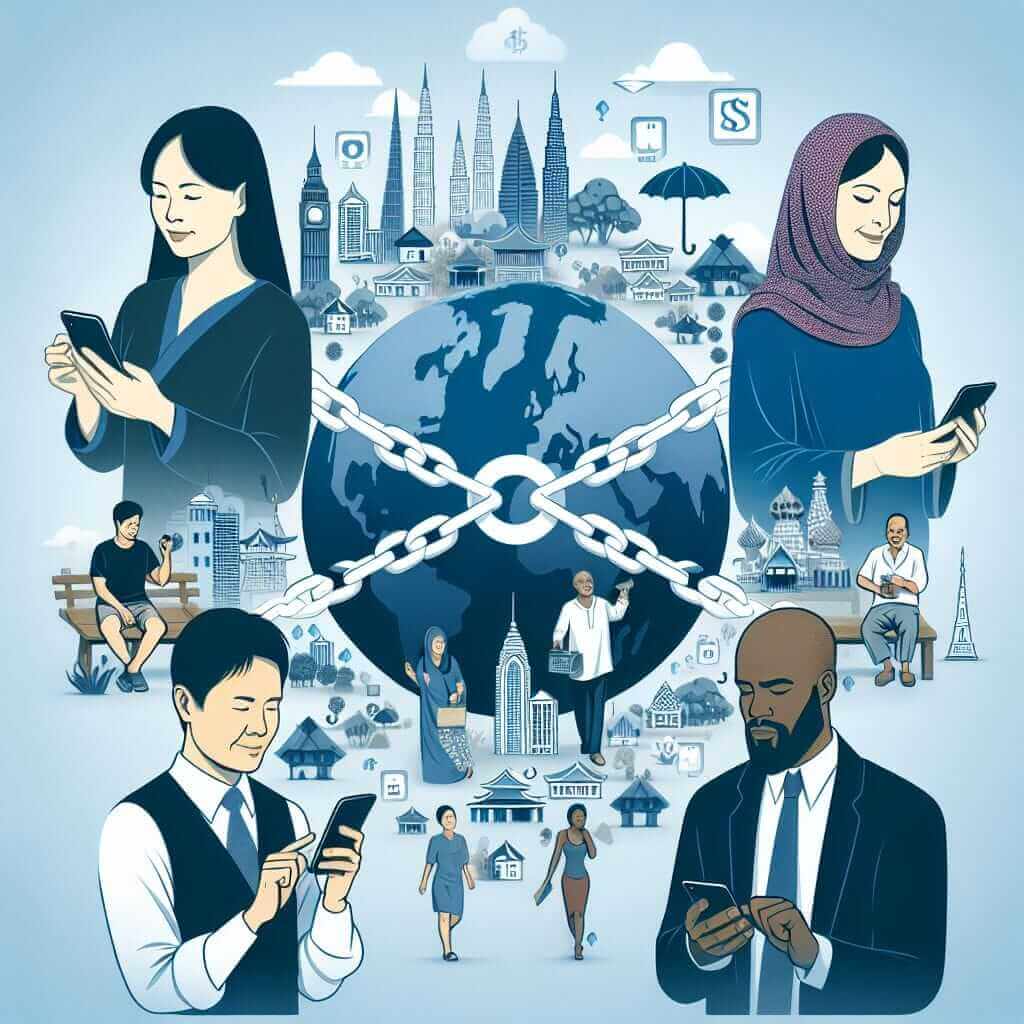The IELTS Reading section is a critical part of the test that assesses a candidate’s ability to understand and interpret texts in English. Topics in the reading section can range from traditional issues to modern technological advancements, reflecting current global trends. One such trending topic is “How is blockchain technology transforming financial inclusion?” This subject has gained attention due to its potential to revolutionize the financial sector, making it a popular area for IELTS test writers.
In this article, we’ll create an IELTS Reading test practice based on the key theme of blockchain technology and financial inclusion. We will provide a detailed reading passage, various question types, and an analysis to help you understand and prepare effectively.
Reading Passage: How is Blockchain Technology Transforming Financial Inclusion?
Easy Text
Blockchain technology, a type of distributed ledger technology, allows for super secure and transparent transactions without the need for intermediaries. Originally developed to support Bitcoin, blockchain technology is now being seen as a tool to foster financial inclusion globally.
One significant impact of blockchain technology is its potential to provide financial services to the unbanked and underbanked populations. According to the World Bank, about 1.7 billion adults worldwide do not have a bank account. Traditional banking systems are often inaccessible to them due to various barriers, such as high costs, lack of identification documents, and geographical factors. Blockchain can mitigate these barriers by providing decentralized finance (DeFi) solutions, which are accessible to anyone with internet connectivity.

Another remarkable aspect of blockchain is its transparency and security features. Every transaction is recorded on a public ledger that is immutable, meaning it cannot be changed once recorded. This feature greatly reduces risks associated with fraud and corruption in financial transactions. Smart contracts, which are self-executing contracts with the terms directly written into code, further enhance the security and efficiency of financial transactions.
Additionally, blockchain can significantly reduce transaction fees and processing times. Traditional bank transfers can take several days to process and come with various fees. Blockchain transactions can be processed almost instantly and at a fraction of the cost, making financial services more affordable.
While blockchain holds immense potential, it is not without challenges. Issues such as regulatory uncertainties, technological complexities, and the need for widespread adoption are some of the hurdles that must be overcome. However, the ongoing developments in this field suggest a promising future for blockchain technology as a means to achieve global financial inclusion.
Questions
Multiple Choice
-
Which of the following is a key feature of blockchain technology mentioned in the text?
a. Centralized databases
b. High transaction fees
c. Transparent and secure transactions
d. Lack of regulation -
What is one way blockchain technology can help unbanked populations?
a. By decreasing the need for the internet
b. By offering high-interest loans
c. By providing decentralized finance solutions
d. By requiring less-than-adequate identification
Identifying Information (True/False/Not Given)
- Blockchain technology was first developed to support traditional banking systems.
- According to the text, blockchain transactions usually take several days to process.
- Smart contracts are described as self-executing contracts coded into the blockchain.
Summary Completion
Complete the summary below using words from the text:
Blockchain technology helps ____ (6) populations by providing decentralized finance (DeFi) solutions that are ____ (7) to anyone with ____ (8) connectivity. It reduces ____ (9) and processing times, making financial services more affordable.
Matching Information
Match each statement with the correct information from the text:
-
Challenges of blockchain technology (10)
-
Originally developed for Bitcoin (11)
-
Transparent and secure features (12)
-
World Bank’s report on unbanked adults (13)
a. Issues such as regulatory uncertainties
b. About 1.7 billion adults worldwide
c. Can mitigate barriers to financial services
d. Every transaction is recorded on a public ledger
Answer Key
Multiple Choice
- c. Transparent and secure transactions
- c. By providing decentralized finance solutions
Identifying Information (True/False/Not Given)
- False
- False
- True
Summary Completion
- unbanked
- accessible
- internet
- transaction fees
Matching Information
- a. Issues such as regulatory uncertainties
- c. Can mitigate barriers to financial services
- d. Every transaction is recorded on a public ledger
- b. About 1.7 billion adults worldwide
Lessons
Common Mistakes in Reading Tests
- Not Skimming or Scanning: Many candidates read the entire passage slowly without skimming or scanning for key information.
- Ignoring Question Keywords: The answers to questions often hinge on specific keywords or phrases in both the question and the text.
- Misinterpreting Synonyms: IELTS often uses synonyms, so understanding the connection between different words is crucial.
Vocabulary
- Decentralized (adj) /ˌdiːsɛntrəˈlaɪzd/: Not controlled by a single authority
- Immutable (adj) /ɪˈmjuːtəbl/: Unchanging over time
- Transparency (n) /trænsˈpærənsi/: The quality of being easily seen through
- Ledger (n) /ˈlɛdʒər/: A book or other collection of financial accounts
Grammar Focus
- Relative Clauses: Example: “which are accessible to anyone with internet connectivity.”
- Relative clauses provide additional information about a noun, often starting with “who,” “which,” or “that.”
Conclusion
In conclusion, practicing with topics like “How is blockchain technology transforming financial inclusion?” can better prepare you for the IELTS Reading section by familiarizing you with potential examination subjects. Remember to use effective reading strategies, build a strong vocabulary, and understand the grammatical nuances to improve your reading skills. Good luck!